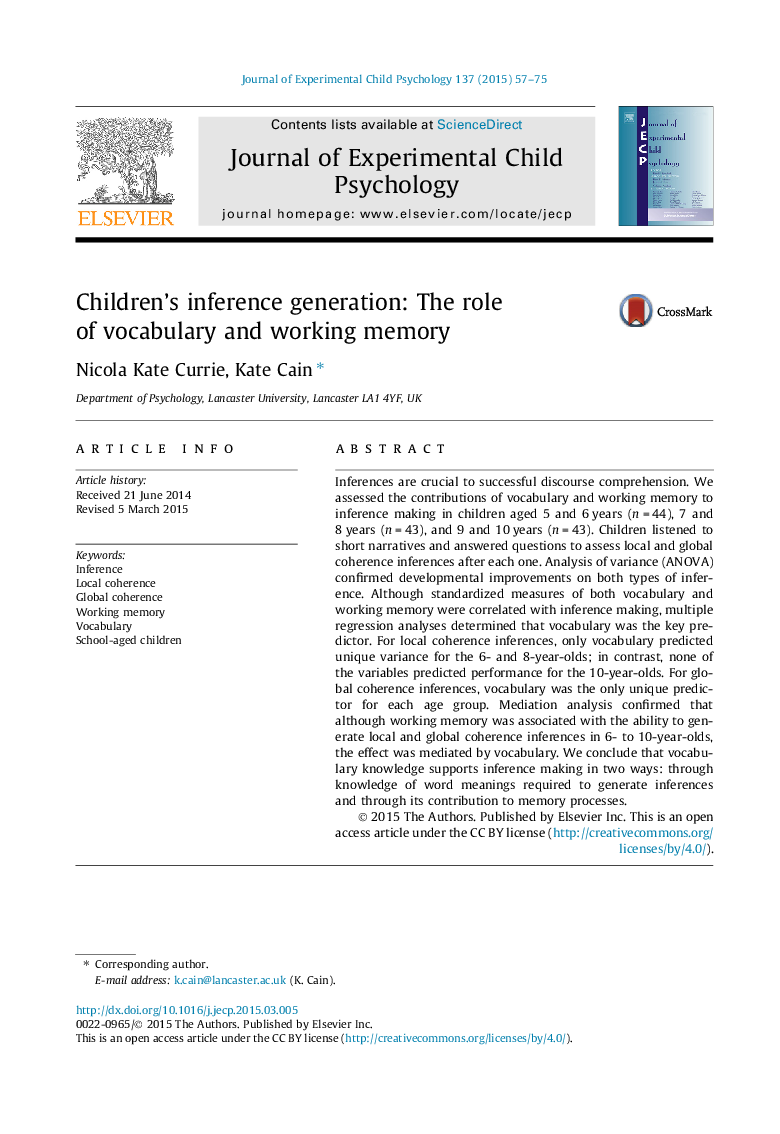| Article ID | Journal | Published Year | Pages | File Type |
|---|---|---|---|---|
| 7275022 | Journal of Experimental Child Psychology | 2015 | 19 Pages |
Abstract
Inferences are crucial to successful discourse comprehension. We assessed the contributions of vocabulary and working memory to inference making in children aged 5 and 6 years (n = 44), 7 and 8 years (n = 43), and 9 and 10 years (n = 43). Children listened to short narratives and answered questions to assess local and global coherence inferences after each one. Analysis of variance (ANOVA) confirmed developmental improvements on both types of inference. Although standardized measures of both vocabulary and working memory were correlated with inference making, multiple regression analyses determined that vocabulary was the key predictor. For local coherence inferences, only vocabulary predicted unique variance for the 6- and 8-year-olds; in contrast, none of the variables predicted performance for the 10-year-olds. For global coherence inferences, vocabulary was the only unique predictor for each age group. Mediation analysis confirmed that although working memory was associated with the ability to generate local and global coherence inferences in 6- to 10-year-olds, the effect was mediated by vocabulary. We conclude that vocabulary knowledge supports inference making in two ways: through knowledge of word meanings required to generate inferences and through its contribution to memory processes.
Related Topics
Social Sciences and Humanities
Psychology
Developmental and Educational Psychology
Authors
Nicola Kate Currie, Kate Cain,
